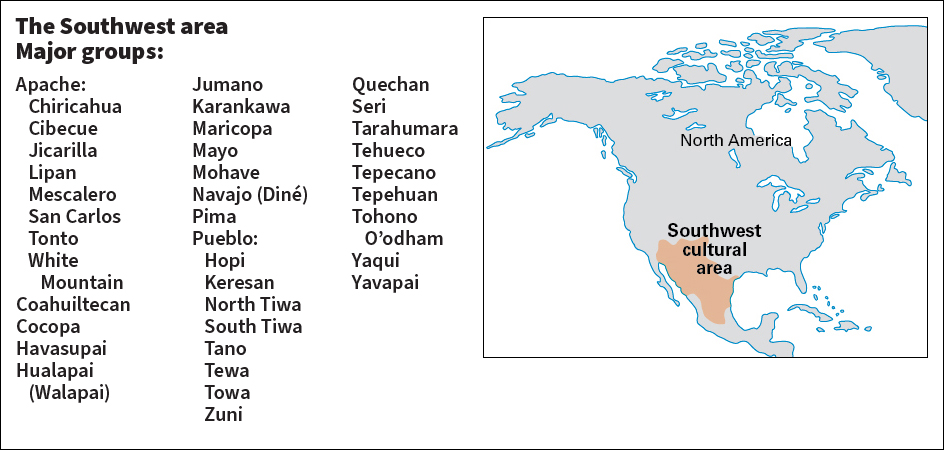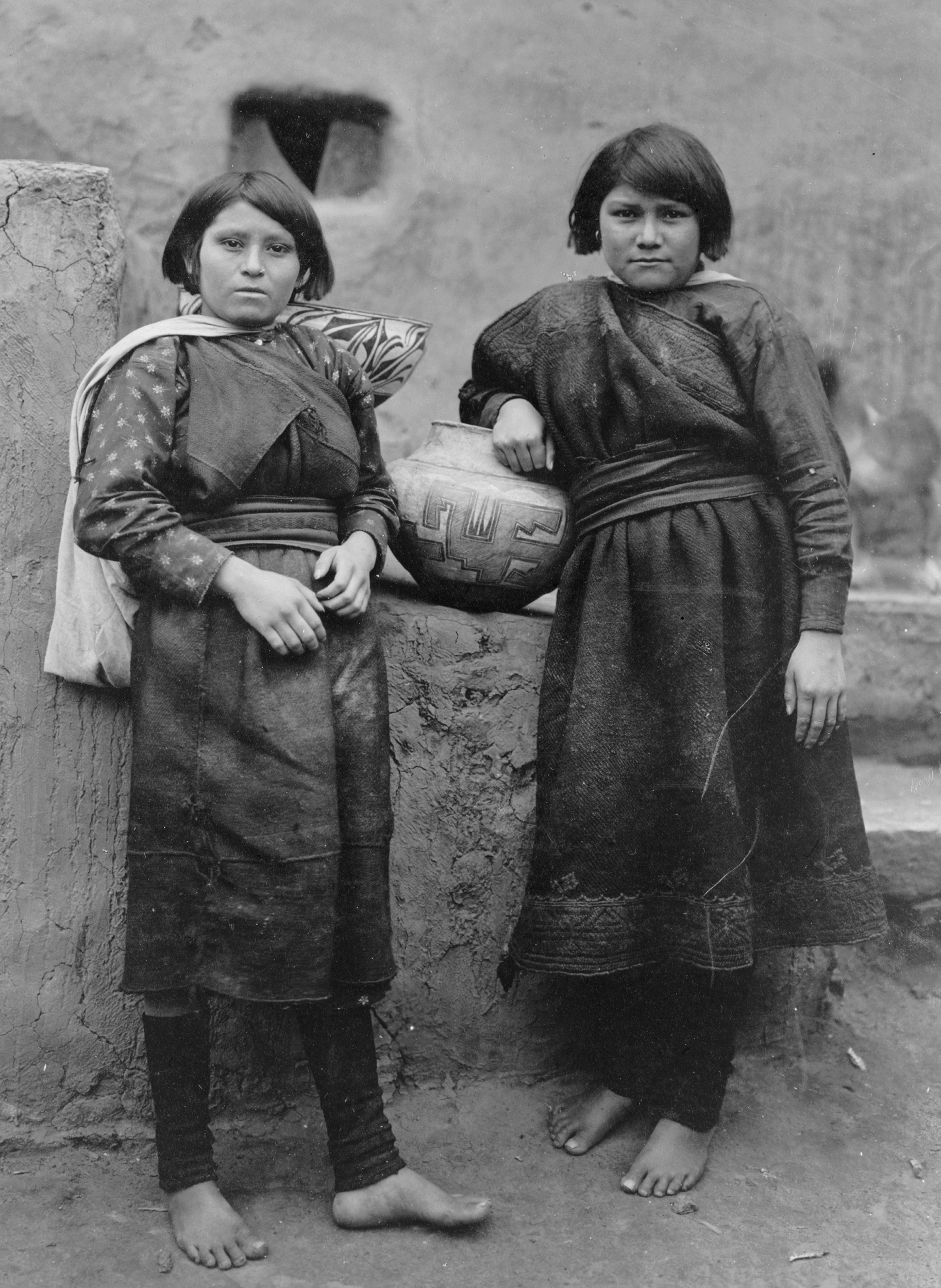Zuni << ZOON yee or ZOO nee >> are a Pueblo tribe of west-central New Mexico, near the Arizona border. According to the 2020 U.S. census, about 10,000 Zuni live in the United States. Most Zuni live on the Zuni Reservation, also known as Zuni Pueblo, in a region that the tribe has inhabited for thousands of years. Some Zuni farm for a living, but they are best known for their jewelry, made of silver, coral, and turquoise. Many Zuni live in traditional houses of stone. Others live in houses built with modern materials.

The Zuni religion ranks as one of the most complex native religions of the American Southwest. It centers around six cults, each with its own rituals. One important Zuni ceremony, the Shalako, is held annually to celebrate the arrival of winter.
Zuni are descended from a prehistoric group known as Ancestral Puebloans (sometimes called the Anasazi). In 1539, the first Spanish expedition to enter what is now New Mexico met the Zuni. The explorers were searching for the fabled Seven Cities of Cíbola, which were believed to be rich in gold. The Zuni resented the invasion by foreigners. They killed one of the explorers, a Black guide named Estevanico. The Spanish adventurer Francisco Vásquez de Coronado came seeking the Seven Cities in 1540 and instead found six Zuni villages.

The Zuni came under U.S. authority after the Mexican War ended in 1848, when the United States acquired from Mexico parts of what are now New Mexico and Arizona. In 1934, the tribe voted to elect its own civil officials as part of the federal Indian Reorganization Act. In 1970, the Zuni became the first tribe to contract with the federal government to run programs organized by the Bureau of Indian Affairs.
See also Ancestral Pueblo; Cíbola, Seven Cities of; Coronado, Francisco Vasquez de; Estevanico; Pueblo.
